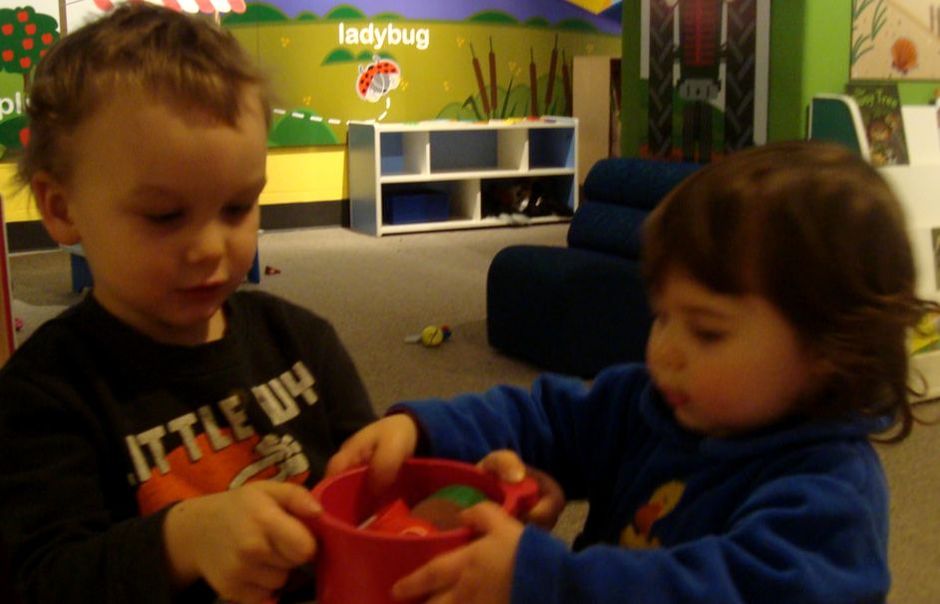|
I'm often asked if I believe that the world is a more dangerous place for children today than it was for previous generations, and my answer is always the same. I don't believe it's more dangerous, but I do believe that young people are less equipped to deal with those dangers. Growing up in the 50s and 60s, I often went out in the morning, stopped back for lunch then went out again until dinner. I'd sometimes ride miles from home on my bicycle. We didn't have cell phones, and we didn't need them. There were always neighbors around, even on school days, and most families had a stay-at-home mom. My own mother worked part-time but scheduled her work for school hours or nights, when my dad was home. When my own children were young, rather than my pursuing a career outside of the home, their father and I decided that I would stay home with them. It was a huge financial struggle, but I value that precious time spent with them. Today, it's an even bigger struggle, and I understand that most families can't afford to do that. Through no fault of any individuals, children find themselves with very little free time. A lot of them are in daycare or after-school programs until dinnertime. Some of them spend too much time in front of a screen so that adults can get chores done and prepare meals. We've also been convinced that our children are falling behind academically. As a result, they have very little playtime or free time in school to learn important socialization skills that can't be formally taught. Many of them also have a full schedule of extracurricular activities, leaving little time for reflection. They are kept so busy, they don't learn how to deal with boredom which can then become debilitating when they reach adulthood. Young children learn through unsupervised play. By playing with others, they learn to share and learn to compromise and problem-solve. It's important for us as parents to help them learn how to function in the world. Notice that I didn't say teach them but instead chose to say "help them learn." It's not something that can be taught. We all learn from our mistakes, and so each of us needs to make those mistakes. Yes, we want to protect our children, but if we shelter them, they don't learn responsibility for their own safety. It makes me sad to think that we now have to make a concerted effort to do that, when once it just came naturally, a part of our everyday lives. So what can we do now? I think we need to let our children wander away from us a bit. Some of us live in safe neighborhoods where our children can find other kids to play with. We need to encourage gaggles of kids again. Maybe we need to be less fearful of families who may be different, have different rules, politics or ideals. Eventually, our children will choose for themselves who their friends will be. Why not let them experiment now? My granddaughter recently got herself in a bit of trouble by following questionable friends and learned valuable lessons from that. She then decided to move on to a different group of teens. It was minor trouble but a major life lesson. It's not easy to step back and let them flounder, but well worth it in the end. In addition to the suggestions above, it's important to let our children make as many of their own decisions as we can. What harm is there in letting them choose what we may see as an outrageous outfit to wear for the day? It may not be what we would choose, but again, that's how they'll learn. We can also give them lots of choices. If we're going out somewhere and want them to look their best, we can say, "Which of these outfits would you like to wear?" That gives them the opportunity to make a decision that we're okay with. Another very important skill to be learned is being organized and neat. If you have a simple easily accessible place for shoes, coats and hats, you can expect your child to put their things away when they come in. They can also easily go retrieve those same things when it's time to go back out. They are very smart. If we constantly take care of the everyday things for them, such as hanging up their coats or helping them put them on, they will come to expect it and will soon be demanding it, when we no longer want to be in that role. Below is a video on a simple and fun way for toddlers to put their coats on. Children want to be independent but we often teach them dependence on us. It's easier and quicker to do things for them. If we can be patient, with praise and encouragement they will master these things and will feel confident and proud of their accomplishments. If you'd like to explore this topic more, here are some helpful websites.
www.brighthorizons.com/family-resources/e-family-news/children-developing-independence-right-balance www.todaysparent.com/kids/teaching-kids-to-be-more-independent/ www.scholastic.com/parents/resources/article/social-emotional-skills/how-to-foster-independence
0 Comments
Your comment will be posted after it is approved.
Leave a Reply. |
Archives
April 2019
Categories |


 RSS Feed
RSS Feed